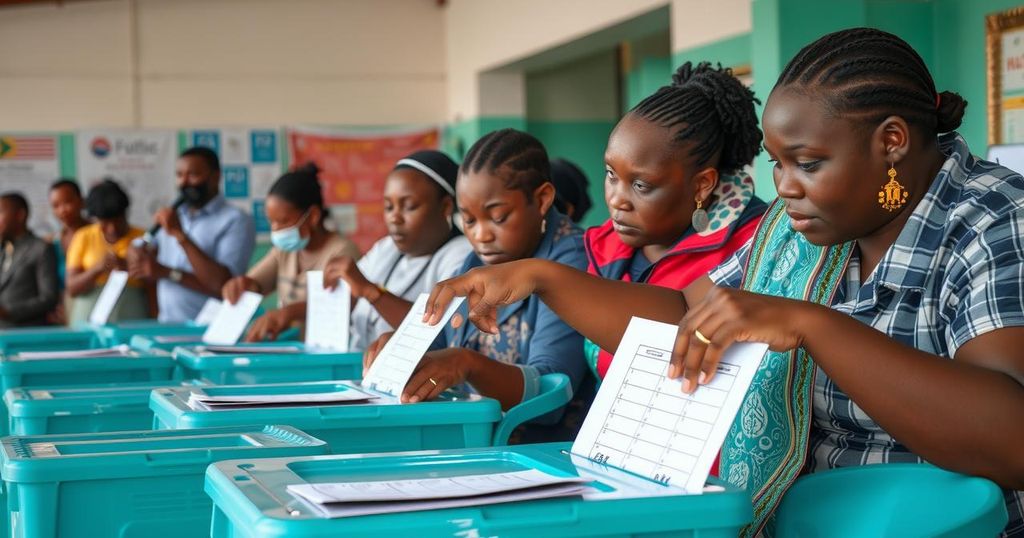Voters in Comoros are electing a new 33-seat parliament amidst allegations of irregularities in the previous election which saw President Azali Assoumani retained in power. Approximately 338,000 registered voters are participating, with nearly 100 candidates contesting. The political climate remains tense, as opposition factions debate boycotting versus participating in the elections. Results are anticipated by this Friday.
In the Indian Ocean archipelago of Comoros, voters have convened at polling stations to participate in elections for the nation’s 33-seat parliament. This election follows a contentious previous vote in which President Azali Assoumani was re-elected; the opposition claimed significant irregularities marred that process. Despite these claims, officials from Assoumani’s ruling party have categorically denied any wrongdoing. A total of approximately 338,000 citizens are registered to vote, marking a key moment in Comoros’ political landscape as the last parliamentary elections were held in January 2020.
The Supreme Court of Comoros has selected nearly 100 candidates to compete in the elections. President Assoumani, in power since 1999 following a coup, faces accusations of authoritarian governance and aspirations to pass leadership to his son, Nour El-Fath, reportedly granting him extensive powers beginning in 2024. Some opposition factions, particularly the Juwa party led by former President Ahmed Abdallah Sambi, who was sentenced to life in 2022, have advocated for a boycott of the elections; however, others have opted to participate in order to highlight the current regime’s deficiencies.
Hamidou Karihila, an opposition candidate from the ‘Hope of the Comoros’ party, expressed his belief that engaging in the electoral process is pivotal for revealing the government’s systemic flaws. The anticipation for election results is high, with outcomes expected to be disclosed by Friday.
The Comoros, an archipelago in the Indian Ocean, has experienced political turmoil since President Azali Assoumani seized power in 1999 through a coup d’état. Assoumani has navigated several elections since then, continuing to face criticism regarding electoral integrity and governance style. The political environment has become increasingly polarized, particularly following his recent re-election and the alleged perplexities surrounding the electoral process. The current parliamentary elections mark a significant step for the Comorian populace, as they navigate issues of representation, governance, and a lack of trust in the ruling party’s power structure. Opposition groups play crucial roles in voicing dissent and mobilizing public sentiment against the regime.
In conclusion, the parliamentary elections in Comoros symbolize a critical juncture in its political evolution. With local opposition expressing significant concern over the ruling party’s practices and political intentions, the electorate remains pivotal in determining the future direction of governance. As the nation anticipates the results, the elections may set the stage for potential shifts in power dynamics within Comoros, reflecting the ongoing struggle for democratic integrity. The coming days will reveal the electorate’s response to the political climate and its implications for the Assoumani administration.
Original Source: www.stawelltimes.com.au






